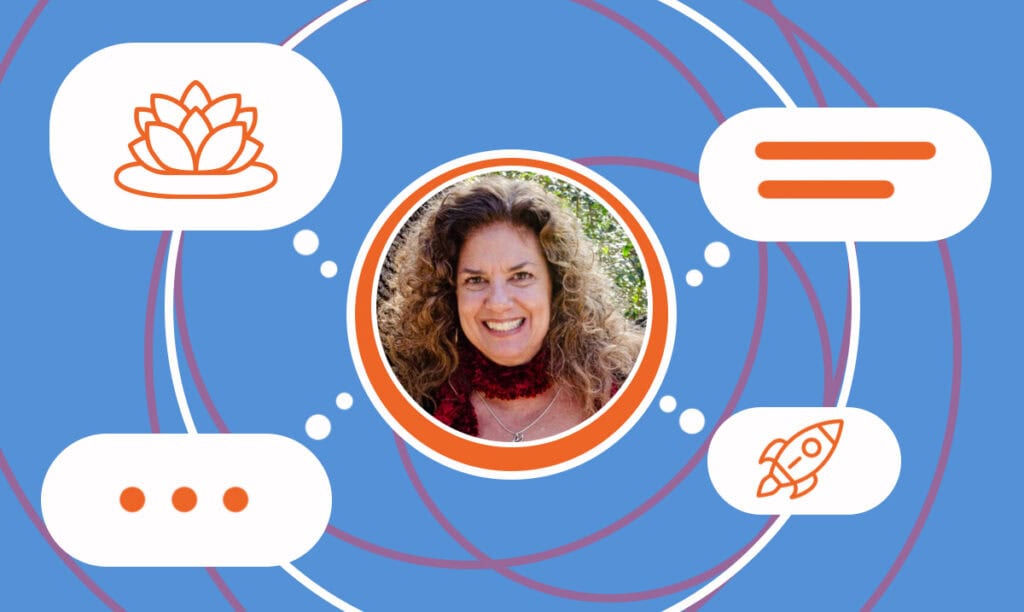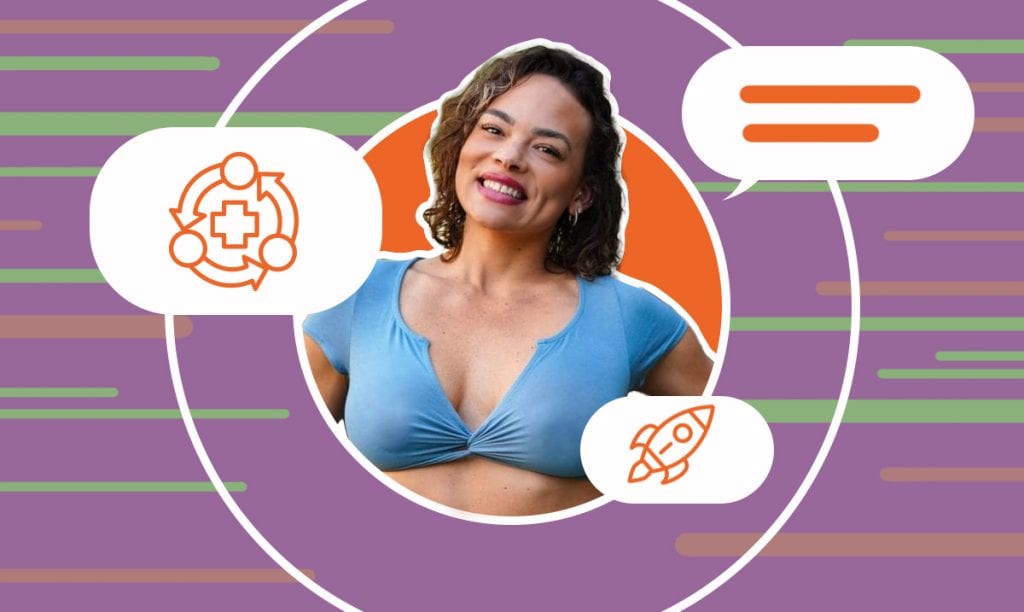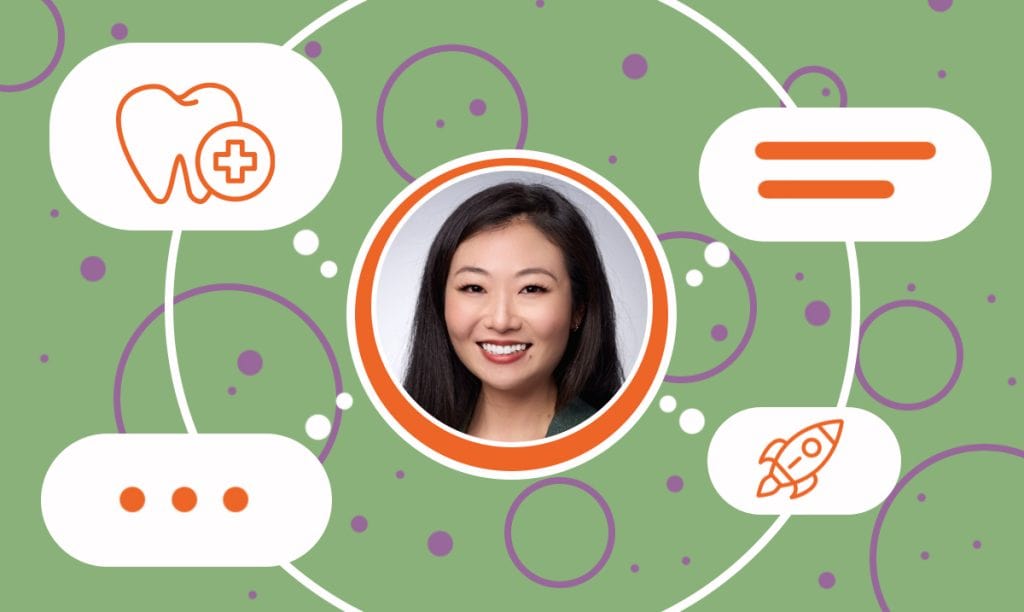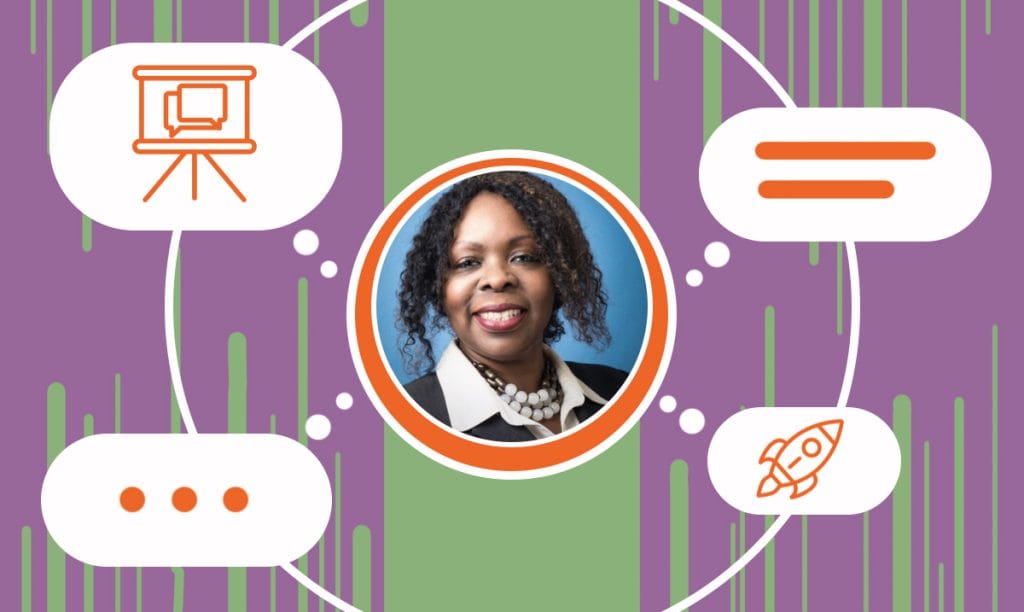Lin Mezori, the matriarch behind Pure Recovery, has transformed the wellness and recovery space with her vision of blending innovative therapies and ...
How Charlotte Spirituality Center Cultivates Soulful Connections
Written by: Carolyn Young
Carolyn Young is a business writer who focuses on entrepreneurial concepts and the business formation. She has over 25 years of experience in business roles, and has authored several entrepreneurship textbooks.
Published on April 24, 2024

Embarking on a journey of spiritual growth and enlightenment often requires guidance and support. Linda Serepca, the executive director of Charlotte Spirituality Center and the author of Praying Twelve Steps With Jesus: A Journey Back to Wholeness, has dedicated her life to providing such guidance and nurturing spiritual development within the community.
Through this interview, we explore her story of how she found herself in the work of spiritual direction, the challenges she faced in adjusting the Center’s teaching programs, her commitment to educating and bettering many people (not just those who are religious), and how Charlotte Spirituality Center provides guidance to death row inmates in Angola prison.
Embarking on the Spiritual Journey
SBS – How did you decide to focus on the niche of spiritual direction? What’s the story behind Charlotte Spirituality Center?
Linda – Charlotte Spirituality Center has been around since 2010. We’re in the South, in a religious area in the Bible Belt, and we started noticing a trend of people, especially the younger generation, moving away from the structures of religion and belonging to a house of faith. They had a spiritual life and wanted spiritual growth, but they weren’t necessarily attached to a church.
I came on board about a year after the Center was founded, so I’ve been on the ground level. But our founder, who’s also Catholic, was a chaplain at Carolinas Medical Center (Atrium). She was in the physical rehab department and noticed that people needed more than just a chaplain visit, more than someone to pray with them. They needed someone they could tell their sacred story to (they were going through transitions, loss, these sorts of things), and she noticed how many people weren’t attached to churches. That’s how we discovered this growing need for a spiritual life, but not necessarily from religious people. Of course, most of us are familiar with the idea of the nones — people not affiliated with a religion. Quite frankly, people are tired of it, but they want spiritual growth. They know that there’s this energy inside them that they want to grow and have tended.
Aside from people who are not affiliated with houses of faith, we also see clergy members — people who are involved in church, but their church is ill-equipped in this area. For example, the church is not equipped to talk about the spiritual life and unpack the person’s experience. For us at the Center, the whole idea of spiritual direction is to raise awareness of a divine source in your life on a day-to-day basis. It’s about living more fully.
People are very attracted to us because our spiritual direction style is unique. You might go to your pastor and tell them about your feelings, and they’re going to go straight to the scripture and give you an answer. However, we will ask you questions that help you come to your own truth so that you can name and claim your experience of a higher power. Some people choose to call that God, some like to call it energy or the goodness of the universe, etc. I come from a catholic tradition, so we’re able to work with people who are deeply entrenched in religion, but they know that there’s something more, or we can sit with people who are nonbelievers — it doesn’t matter.
Another thing that I noticed over the past 13–14 years is that people are starting to recognize that they can’t separate psychology from spirituality because everything in life affects our spirit, the essence of the person. Even though we are not therapists and don’t claim to be therapists, when people can talk about their spiritual life, that has therapeutic value. People who were going to therapy said they were going to start coming to spiritual direction and stop the therapy because they got more here where they could talk about their whole selves. It is more holistic. It’s about the body. It’s about the mental capacity we have, about clarity or fogginess, and it’s also about the soul. We cover it all, so I feel we’re even becoming the new therapy, but who knows?
Navigating Early Challenges
SBS – What challenges did you face in those first couple of years when you came on board, and how did you overcome them?
Linda – Not only do we serve the community with spiritual direction, but we offer a training program. When I came aboard, it was a two-year training program for becoming a spiritual director. When I took over in 2013 after our founder had retired, I turned it into a three-year program because I saw we needed to add two things.
On the front end, I added six months of spiritual formation, meaning people needed the space to figure themselves out before they got into the training. They needed to know their belief systems, which ones were congruent with their lives, which ones weren’t, what needed to be kept, and what needed to be let go of. On the back end, I added peer supervision, so when you leave us, you’re still in a support group, and we get together once a month to talk about your clients (always anonymously, of course, because of ethical standards). All kinds of issues come up with projections, transference, and countertransference, so we want to make sure that you’re the best version of yourself as a spiritual director so that you can be of service in the best possible way for your clients (we call them directees).
Our founder was a little bit older than me, and she was a little more traditional Catholic. The challenge was how to step out of the box, cast the net wider for all spiritual seekers, not just religious ones, and trust the growing trend of what we saw. For instance, we had people on our board who wanted to hold on to tradition a little tighter, make sure that your curriculum covers x, y, z, or make sure that the books are written by catholic priests or whatever. It was a challenge to trust the trend, but it happened to be the right decision because in the beginning, we had a lot of people who were more religious, and now we train all different people, the clergy included. The clergy are seeing the growing trends in their churches, even those wanting to step outside the box.
Community Engagement and Outreach
SBS – What strategies do you use to engage and expand community outreach?
Linda – It’s funny that you should ask that question because I feel like, to a large extent, we rely on God or on a higher power to bring people to us. It may sound funny or naive, but we trust whoever finds us is meant to find us. We’re not super large, but we’re not super tiny either, so it seems to be succeeding.
Also, we have a lot of word-of-mouth recommendations. People have a great experience with us. Of course, it’s wonderful to have the internet as we do now. We’ve done interviews with some of our graduates who talk about their experiences, and we put those online. We hold retreats every other month and send out the advertisements for that to all of our graduates, our sponsors, or friends who have supported us along the way, and they pass those along. The way we do it is communal if that makes sense.
I’ve thought about advertising in certain areas, like Natural Awakenings magazine, but I really don’t want to draw kooky people. I know it sounds funny, but it’s almost better for us to rely on friends of friends of friends and have it grow more organically.
We’re a nonprofit organization, so we’re here to provide good, quality education, to produce spiritual directors, and to serve the community with spiritual direction. This goes along with what we do at the Center. But there’s a certain detachment to success, and I know that sounds funny, but we do trust that if it’s meant to be, it’s meant to be; if it’s meant to die, then it’s meant to die. I don’t want to force or struggle to make something that’s not meant to be, so we do the best work we can where we are. We keep reading the signs of the times, and we may grow in a particular area, like the retreats. We started doing that recently (and we do them every other month) because we noticed that people need a day of retreat. People have busy lives and can’t afford it, not just in terms of money but also in their time to go off on a weekend. For them, a day retreat, a nine-to-three day, can be very refreshing.
Measuring Impact and Success
SBS – How do you measure the success of your programs and the people who attend them?
Linda – I have a quarterly board meeting where I report our numbers. As long as our bills get paid, then that’s successful. It’s very simplistic. What would mean success for us may not look like success to other people. Some may say, “Your retreat was 15 people. You can pack 50.” But we don’t want that. If we have spots for 15 and fill 15, that’s a success.
We don’t necessarily follow all of our graduates. If they want to stay in touch, it’s okay. We invite them to stay close, and I always say we don’t kick you out of the nest. People can practice out of our office if they would like to.
About half of the graduates from our program go forward and will practice spiritual direction. The other half took it just for their own spiritual growth and to enhance what they already do (e.g., if they’re clergy members, it will enhance their ministry). We have all kinds of folks from all kinds of diffrerent fields who say our program has just improved their communication skills.
All in all, if our bills get paid and people keep coming to our door, we call that a success.
Technology in Service Delivery
SBS – What role does technology play in managing and delivering your services?
Linda – The discovery of Zoom (even though Zoom has been around for a long time) — boy, did that save us, especially during COVID! We could move our classes online, so there wasn’t an interruption, which is wonderful. Zoom has been tremendously helpful with seeing our directees, but it also allows us to have students and directees from all over the world. I’m very particular about meeting in person for classes when possible, but Zoom is great when we can’t do that.
However, I do believe in the communal model, especially when it comes to training. Being together is more bonding, especially for what we do, like reading energy. This sounds so new-age, and I don’t mean it that way, but I do mean it as picking up on body language and energy. Still, technology allows us to have a broader base of folks for spiritual direction.
Many people find us through the internet, through our website, so I don’t know how we could do this without technology.
Funding and Future Vision
SBS – How do you find funding for a nonprofit organization and how do you see yourself and your organization in the next five years?
Linda – I have seen growth in the past ten years, and we’re still growing. I should mention that we have also taken on a pretty historical project. I put together a team of spiritual directors, graduates, or even students who have to give so many hours of practice before they graduate, and we are serving as a team of spiritual directors to those on death row in Louisiana State Penitentiary in Angola, LA, which is the largest maximum security prison in the country. We took on that project earlier this year, and it’s going very well so far. I get the feeling that our presence there and that historical movement of forming a team of spiritual directors so people on death row can have quality spiritual care as they’re preparing for execution is going to put us on the map again.
Right now, as a nonprofit, everything that comes in goes back out (that’s what a nonprofit does), but we are seeing our student population grow. Our classes are getting larger now, and I think we will see that trend continue to grow. I have to decide what our limit is going to be.
There’s something else that we are launching right now. I just put together the curriculum for a clergy acceleration program. We have clergy members who want to take our program not because they want to be spiritual directors but because they know it would enhance the ministry and the pastoral care they do at their church or house of faith, but they can’t afford to spend three years doing our regular program. So, we put together a ten-month program that will be on Zoom (technology is our friend there, too) and will hold weekly classes for ten months to train those already in ministry. That’s a unique thing. I see us growing there as well.
Subscribe to Our Newsletter
and gain insider access to cutting-edge business insights and trends.
Featured Resources

How Lin Mezori Is Transforming the Recovery Industry
Published on January 2, 2025
Read Now

How MedAssent DDS Supports Dental Medication Management
Published on September 2, 2024
Lauren Fang is a pioneering force in digital health, co-founding MedAssent DDS with a vision to revolutionize dental care. With a deep-rootedconnect ...
Read Now

How Dr. Arlayn Castle Built a Transformational Coaching Business
Published on August 2, 2024
In this interview, we are excited to speak with Dr. Arlayn Castle, the visionary founder of Castle of Knowledge. Specializing in life andtransformat ...
Read Now
Comments